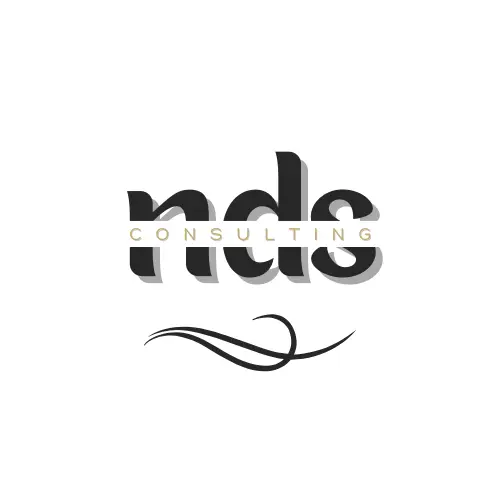
Prior to reading this book, I had no idea how Quincy Jones earned his role as the Godfather of Black creative excellence. After his autobiography was published in 2001, two decades later Jones wrote ‘12 Notes: On Life & Creativity‘. This sequence serves as a great self development book for creatives.
The insight he offers is the kind of advice I wish I received growing up and showcases his preceding paternalistic reputation. After finishing this book, there was one quote that stuck at the top of my mind as an overarching theme.
Quotes from Quincy Jones’ Self Development Book for Creatives
“There are two kinds of people; those who have been nurtured properly, and those who haven’t. There is no in-between. You’re either one or the other.”
– Quincy Jones
Establish your guideposts
Jones credits the nurturance of his personal ‘guideposts’ to his mentors. He stresses the importance of mentorship in navigating his way through polluted environments. What he refers to as ‘guideposts’ are essentially daily affirmations. He explains you create personal guideposts by “verbalizing and affirming the person you want to be, in tandem with the language of the character you already demonstrate.”
Through word and action, guideposts give way to a more profound belief in your convictions about yourself. Repeating them daily rewires your subconscious by shifting your pessimistic internal dialogue, which is a major block for creative expression.
How faith advances the creative process
Another humble reminder Quincy shares is the necessity of spiritual growth. Through faith and prayer, he feels his way through self-evolution (albeit at times slowly but surely) with a distinctive determination. This is my favorite quote from the book:
“God is guiding me with a divine will to build a character I can love, respect, and live in for eternity.”
Guideposts should include your aspirations for faith, intelligence, discipline, ethics, resiliency, or personal purpose. Whatever themes they focus on, they should reflect the version of yourself you’re trying to become. Maintaining a healthy relationship with yourself is necessary to experience success in your creative pursuit. For this, meticulousness and consistency in your self-care routine are required. Many creatives struggle with imposter syndrome, insecurity, an inflated sense of ego, self-sabotage, or a lack of motivation. These challenges create barriers between the artist and their craft. Another helpful reminder Jones offers to pivot your perspective is:
“Creativity flows through you, not to you.”
Exploring your authentic narrative
Throughout the book, the author stresses the importance of tending to your mental health to evolve your work and quality of life. With this in mind, he outlines how being underestimated is an ideal position to be in. This is because it provides a unique opportunity for you to surpass the bars that have been set for you. When you learn not to take things personally, you discover this is the only way to grow into your best self.
“You must be sitting in truth in order to create truth.”
On manifesting success for creatives
“Don’t put a cap on your own potential, and don’t allow anyone else to either. Explore different fields of your discipline and soak up all you can learn.”– Quincy Jones
For creatives, aka “right-brain-dominant” people, Jones expresses the need for sharpening the left brain to ensure you’re ready to actually deliver on opportunities when they start to manifest.
“Your success in any field is only as strong as the foundation you create for yourself.”
Passion without formal training in your craft will only take you so far. In your era of personal and professional growth, it is of the utmost importance to soak up all the knowledge and information you possibly can to be the best at your craft.
“That’s when I learned that God gave us two ears and one mouth, because we’re supposed to listen twice as much as we talk.”
Quieting your mind to receive messages from your subconscious is the key to getting out of your own way when it comes to creative success. Don’t create just because. Go by your gut instinct and if it doesn’t give you goosebumps, table it for another time. Jones offers insight on best practices to get into your creative flow and work through periods of stagnancy. The takeaway: “Don’t get stuck in the cycle of mediocrity.”
Share your creative gifts
As a recap, “it doesn’t matter what you achieve if you don’t work on yourself first.”
Once you realize your purpose and how to put it into practice, it’s up to you to share it with the world. Let this unfold as your life inherently does, permitting your audience to recognize transparency and vulnerability in your creative process.
Even if exposing your learning process feels uncomfortable at first, remember that doing so will serve as someone else’s blueprint for navigating hard times, which they would otherwise have to learn the hard way.
“When God gives you a gift, it’s your responsibility to be a good steward of that gift.”– Quincy Jones














4 responses to “Book Review: 10 Quotes From Quincy Jones’ Self Development Book For Creatives”
[…] I cannot stress the importance of establishing guideposts and pinning them to the top of your mind as often as possible. The most effective way to use […]
[…] I get ready for the day, I put my headphones on and listen to my guideposts via voice memo. I prefer doing this instead of reciting them to myself in the mirror because, well […]
[…] I mentioned in a previous blog post, I’m working on establishing my guideposts. Thus, I graduated from reciting them via post-its to […]
[…] I get ready for the day, I put my headphones on and listen to my guideposts via voice memo. I prefer doing this instead of reciting them to myself in the mirror because, well […]